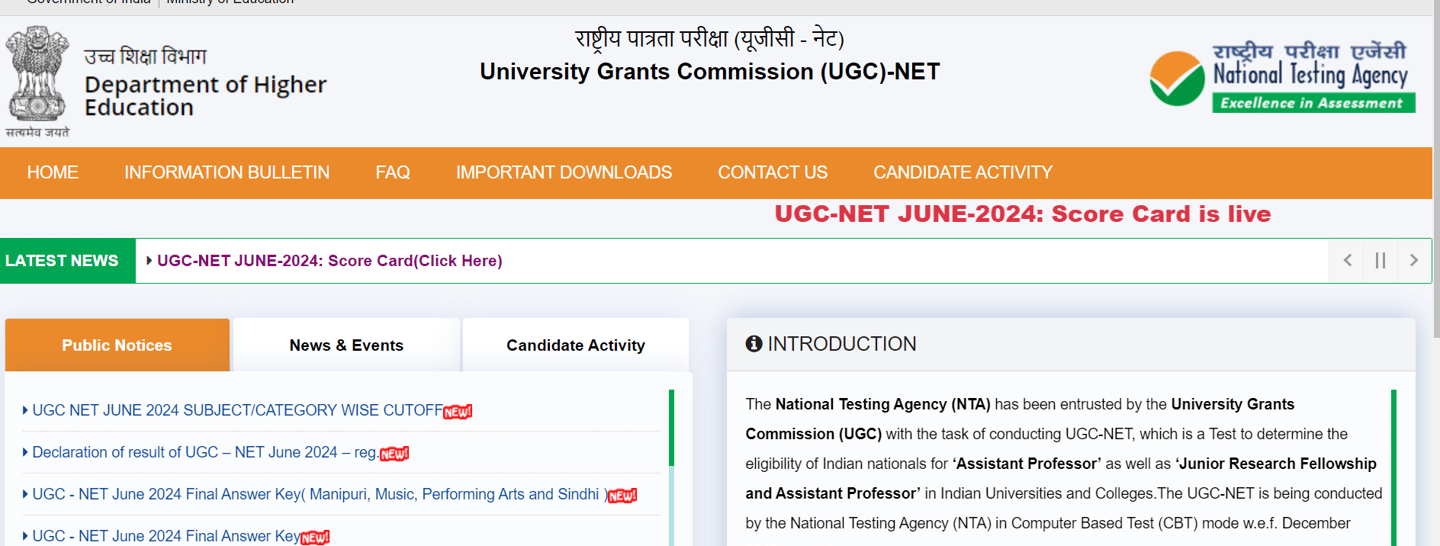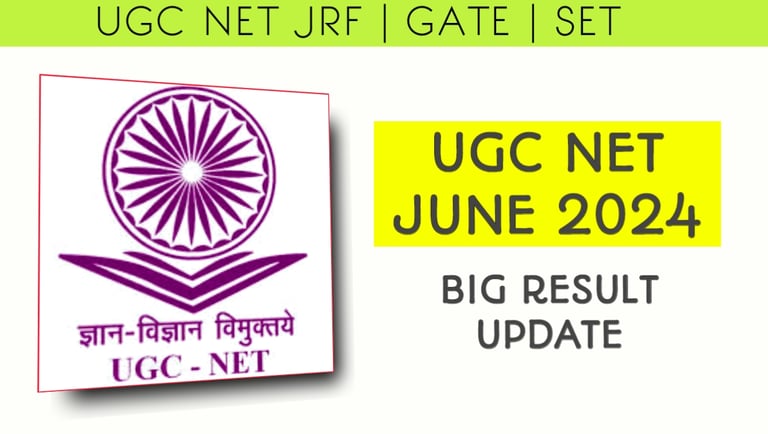UGC NET 2024 RETEST RESULT OUT
The much-awaited announcement of the UGC NET June 2024 retest results are OUT. Scheduled for October 17, 2024,


The much-awaited announcement of the UGC NET June 2024 retest results is just around the corner. Scheduled for October 17, 2024, the declaration of these results will mark a significant milestone for thousands of aspiring lecturers and researchers across India. As the countdown begins, let's explore the significance of the UGC NET exam, the reasons behind the retest, and what to expect from the results announcement.
The Significance of UGC NET
The UGC NET (National Eligibility Test) is a crucial examination conducted by the National Testing Agency (NTA) on behalf of the University Grants Commission (UGC). It serves as a gateway to various academic and research opportunities, including:
* Lectureship: Qualifying in the UGC NET makes candidates eligible for lectureship positions in Indian universities and colleges.
* Research: Successful candidates can pursue research programs under the UGC fellowship schemes.
* Government Jobs: Many government organizations consider UGC NET qualification as a prerequisite for certain positions.
The Retest: A Necessary Measure
The decision to conduct a retest for the UGC NET June 2024 was made due to the PAPER LEAK encountered during the original examination. These issues, while unfortunate, did not deter the NTA's commitment to ensuring a fair and transparent assessment process. The retest allowed affected candidates to rectify any shortcomings and compete on a level playing field.
What to Expect from the Results Announcement
The declaration of the UGC NET June 2024 retest results will be a momentous occasion for all candidates. Here's what you can expect:
* Online Publication: The results are likely to be announced on the official NTA website. Candidates will need to visit the website and enter their login credentials to view their scores.
* Scorecard Details: The scorecard will contain crucial information such as:
* Candidate's name and roll number
* Subject code
* Marks obtained in each section
* Overall score
* Qualifying status
* Cut-offs: The NTA will also release the qualifying cut-offs for different categories (general, OBC, SC, ST, etc.). Candidates who score above the cut-off will be considered eligible for lectureship or research.
* Merit List: In addition to the results, the NTA may also publish a merit list ranking candidates based on their overall scores.
Tips for Checking Results
To ensure a smooth experience while checking your results, keep the following tips in mind:
* Be Prepared: Have your application number and password ready.
* Check Multiple Times: If you encounter any difficulties, try checking the results again after some time.
* Official Website: Always refer to the official NTA website for accurate information.
* Avoid Rumors: Be cautious of unverified information circulating online.
Beyond the Results
While the UGC NET results are undoubtedly important, it's essential to remember that they are just one step in your academic journey. Even if you don't qualify in this attempt, there are always other opportunities and paths to explore. Focus on your strengths, learn from your experiences, and continue striving towards your goals.




UGC NET June 2024 Retest Results:
What to Do After Clearing UGC NET JRF
Congratulations on clearing the UGC NET JRF! This achievement opens doors to various exciting opportunities in academia and research. Here are some potential paths you can explore:
1. Pursuing a Ph.D.
Direct Admission: Many universities offer direct admission to Ph.D. programs for candidates who have cleared the UGC NET JRF.
Fellowships: You can apply for various fellowships like the UGC JRF, CSIR JRF, or other institutional fellowships to fund your Ph.D. studies.
Research Areas: Choose a research area that aligns with your interests and expertise.
2. Teaching in Universities
Lectureship: You can apply for lectureship positions in universities and colleges.
Teaching Experience: Consider gaining some teaching experience through part-time teaching or guest lectures.
Competitive Exams: Prepare for competitive exams like the Assistant Professor Recruitment Test (APRT) or similar exams conducted by state or central universities.
3. Research and Development
Research Institutions: Join research institutions like IITs, IIMs, IISc, or national laboratories.
Research Projects: Participate in research projects funded by government agencies, private organizations, or international funding bodies.
Collaborations: Collaborate with researchers from other institutions to expand your research network.
4. Government Jobs
Eligibility: Explore government job opportunities that require a UGC NET JRF qualification.
Competitive Exams: Prepare for competitive exams conducted by government agencies like UPSC, SSC, or state-level PSCs.
5. Industry and Corporate Sector
Research and Development: Work in the research and development departments of companies in various sectors.
Consultancy: Offer your expertise as a consultant in your area of specialization.
Entrepreneurship: Start your own research-based venture or consultancy firm.
Additional Tips:
Networking: Build strong connections with researchers, professors, and industry experts.
Publications: Publish your research findings in reputable journals.
Conferences: Attend conferences and workshops to stay updated on the latest developments in your field.
Mentorship: Seek guidance from experienced mentors who can provide valuable advice.


